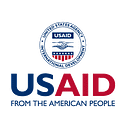Improving Service Quality at Al Karak Hospital in Jordan
Comprehensive training through LHSS reduces medication errors
A quality improvement initiative underway at Jordan’s Al Karak Hospital is reducing medication errors and optimizing treatment for patients in the intensive care unit (ICU).
The effort began in 2022, when the USAID Local System Sustainability Project (LHSS) collaborated with the Jordan Ministry of Health to conduct a training of trainer’s course in quality, safety, and risk management for staff serving on the hospital’s quality improvement committee. Committee members then used the FOCUS (Find-Organize-Clarify-Understand-Select), PDSA (Plan-Do-Study-Act) and fishbone analysis tools to identify pressing issues in the medication process and analyze opportunities for improvement.
The analysis revealed a high occurrence of medication errors, an increase in medication dispensing that compromised treatment outcomes, and extended inpatient stays in the ICU.
“Through the USAID training, we acquired the skills to identify and resolve these challenges, leading us to promptly devise a quality optimization plan,” said Dr. Moataz Al-Qarala, the director of the southern Jordan hospital.
A major area that required immediate attention was medication dispensing. Data collected in the ICU showed errors in dispensing the correct dose of medication, with patients receiving either too much or too little for their needs.
The hospital took immediate action to train staff on effective ways to reduce these errors and ensure that medication dispensing in the ICU adhered to protocols. As part of the quality optimization plan, trained hospital staff also developed specific medication administration policies for the ICU and monitored policy compliance through routine ICU rounds by the clinical pharmacists.
The capacity strengthening was not limited to medication dispensing. Dr. Al-Qarala explained that with support from LHSS, the quality improvement committee identified other areas requiring improvement, leading to targeted training programs on Medication Preparation in ICU, Potential Side Effects of ICU Drugs, Dosage of ICU Medication, Protocols and Polices of ICU Medication, and Safety and Medication Incident Reporting.
Clear signs of improvement
Initial results indicate that the interventions are improving both patient outcomes and resource use efficiency.
Following staff training, the number of reported medication errors decreased from four incident reports per quarter during the first three quarters of 2022 to just two in the fourth quarter, and to zero in the first and second quarters of 2023.
The average length of stay in the ICU also went down, from 3.8 days in 2022 to 3.5 days in 2023. For cardiac care patients specifically, the average duration of overnight stays decreased from 3.5 days in 2022 to 3.3 days in 2023.
“We continually strive to elevate the quality of our services by nurturing the skills of our health care personnel and by continuously monitoring staff performance and indicators,” said Dr. Al-Qarala. “This program has had a profoundly positive impact on our patients’ lives.”
